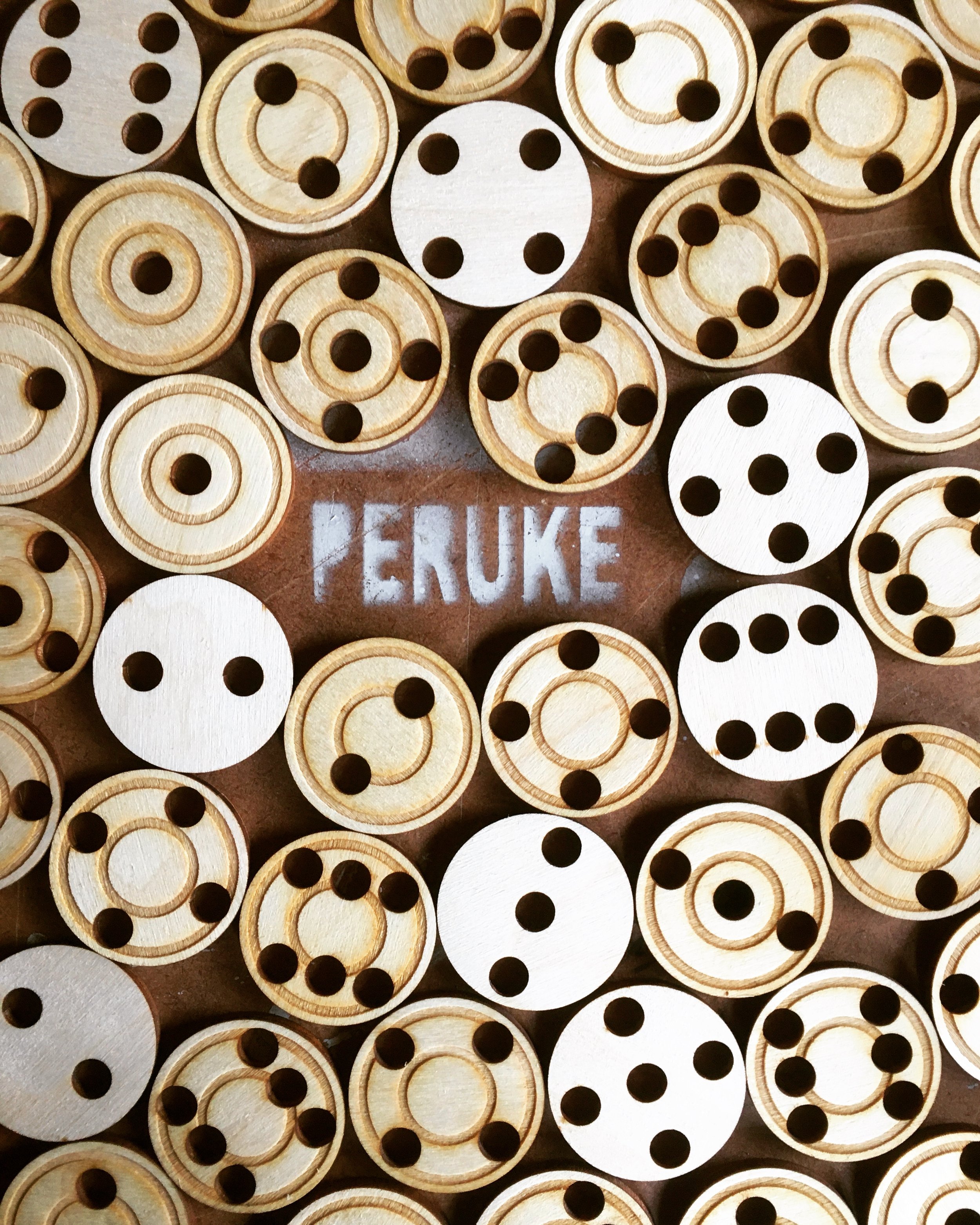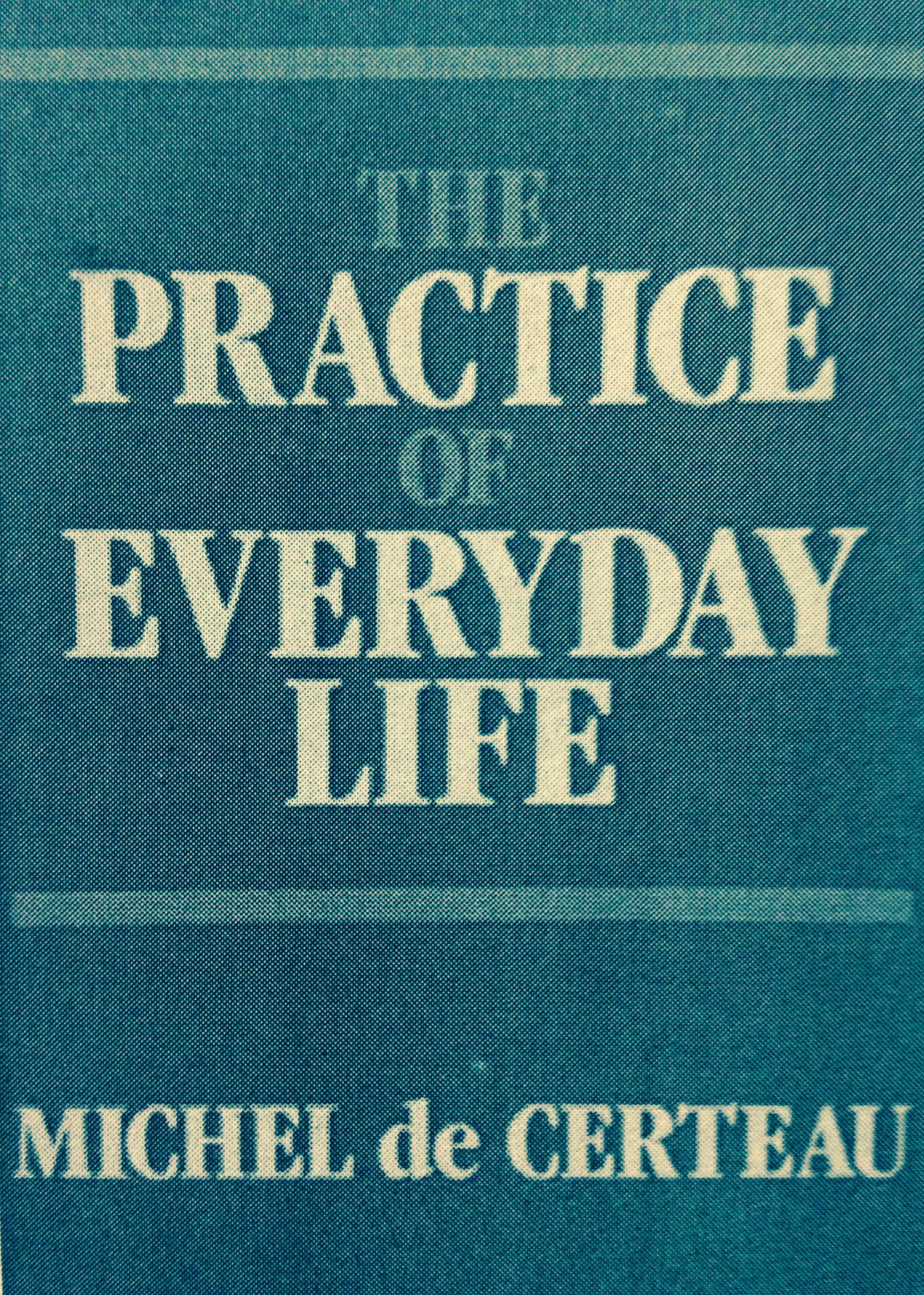
ABOUT US
The game ‘Peruke’ evolved out of a conversation
Mark Littlewood & James Gillham had at work.
In 2014, as lecturers and artists we where looking for a new creative challenge
- the criteria: to create a dice game that was easy to understand,
but hard to master; and would include all players until the last play.
Peruke was developed through various iterations over about 2 months, in our lunch breaks, and using off-cuts of wood and plastic. Multiple combinations of dice and discs were tried; and in the end the 6 discs and 3 die were settled on as the most 'well balanced'.
Home-made dice and card discs were used to begin with, moving to acrylic discs (with stickers to create the spots) later.
From this position Peruke evolved into 24 laser-cut wooden discs - housed inside a regular-sized tobacco tin - alongside standard six sided dice.
Representing simplified currency, the discs - six each for four players - are accumulated depending on the roll of the three die, mimicking the redistribution of wealth.
The rules allow for some real complexity in game play, strategically allowing for team-ups and alliances - a social game with a socialist spin.
We pride ourselves on our design and attention to detail - not just on the look of the product itself, but also our ability to design well considered and functioning rules sets.
At the moment our biggest challenge is to not keep designing new versions of the game - a bottomless pit of ideas and rules.
"We wanted to develop a game that would be fun to play but that could also incorporate and encourage ideas from critical, conceptual and political theories."
The name ‘Peruke’ is a derivation of the term ‘La Perruque’, coined by French scholar
Michel De Certeau.
De Certeau, in the 1984 book ‘The Practice of Everyday Life’, presents the idea of La Perruque (or wigging) by which the worker uses their lunch breaks and off-cuts to create their own products.
"La perruque is the worker's own work being performed at the place of employment under the disguise of work for the boss. Nothing of value is stolen; what is taken advantage of is time.”
De Certeau's important book also discussed the principles of tactics and strategy. So, Peruke not only reflects the method by which the game was created (in lunch breaks, using off-cuts), but also its game-playing concept.
In the Practice of Everyday Life, Michel de Certeau construes the idea as a socio-cultural trope of sorts, in which the socially weak (e.g.those who must work for others) make use of the socially strong (e.g the bosses) by carving out an independent domain within the circumstances imposed upon them from above.
We were lecturers at the time and we used the tactic of 'La Perruque' to develop & produce the game at the institution we were teaching at!


